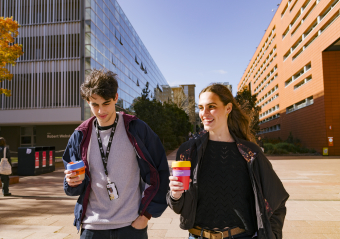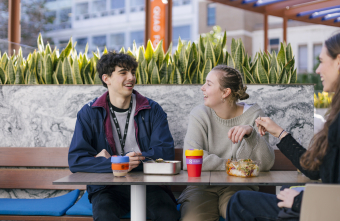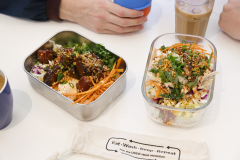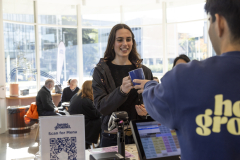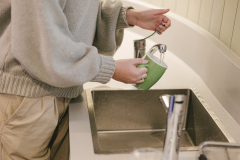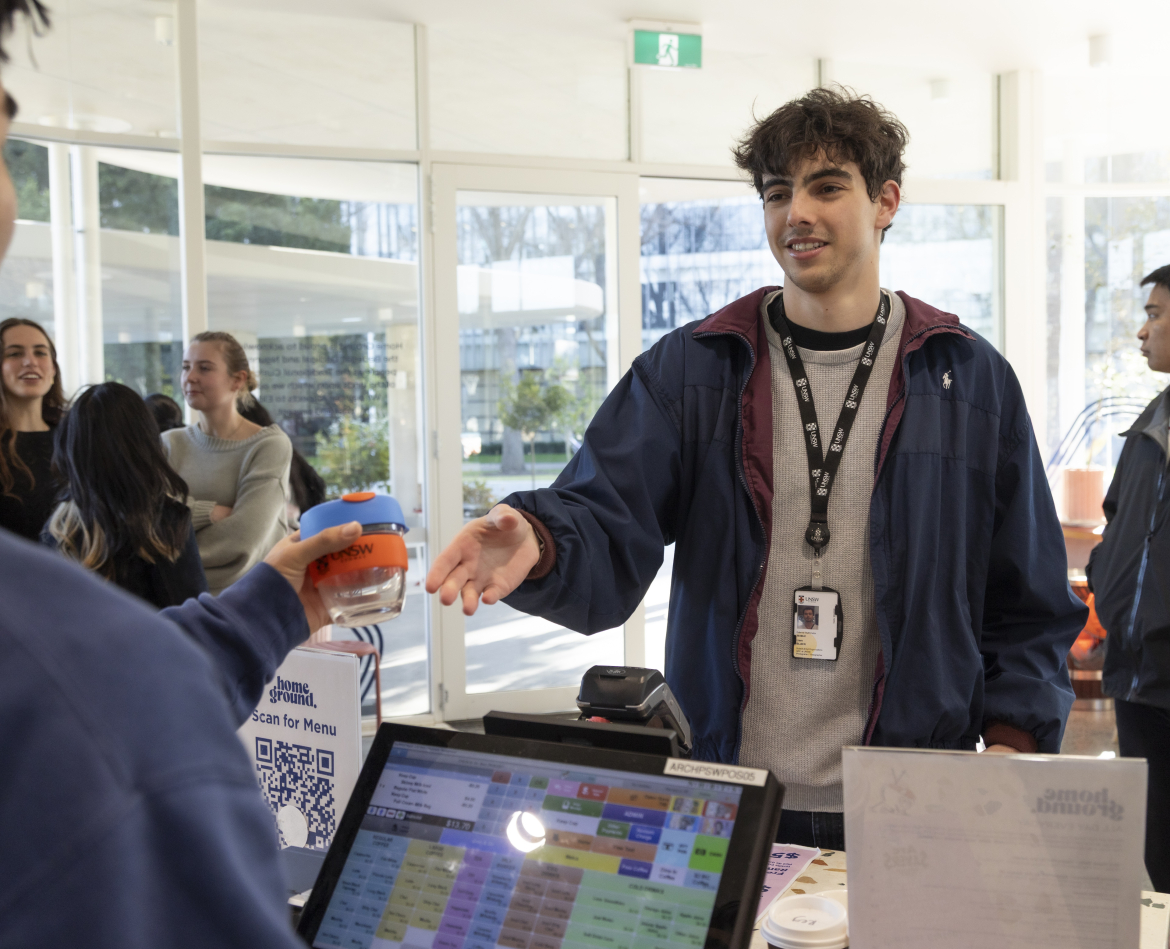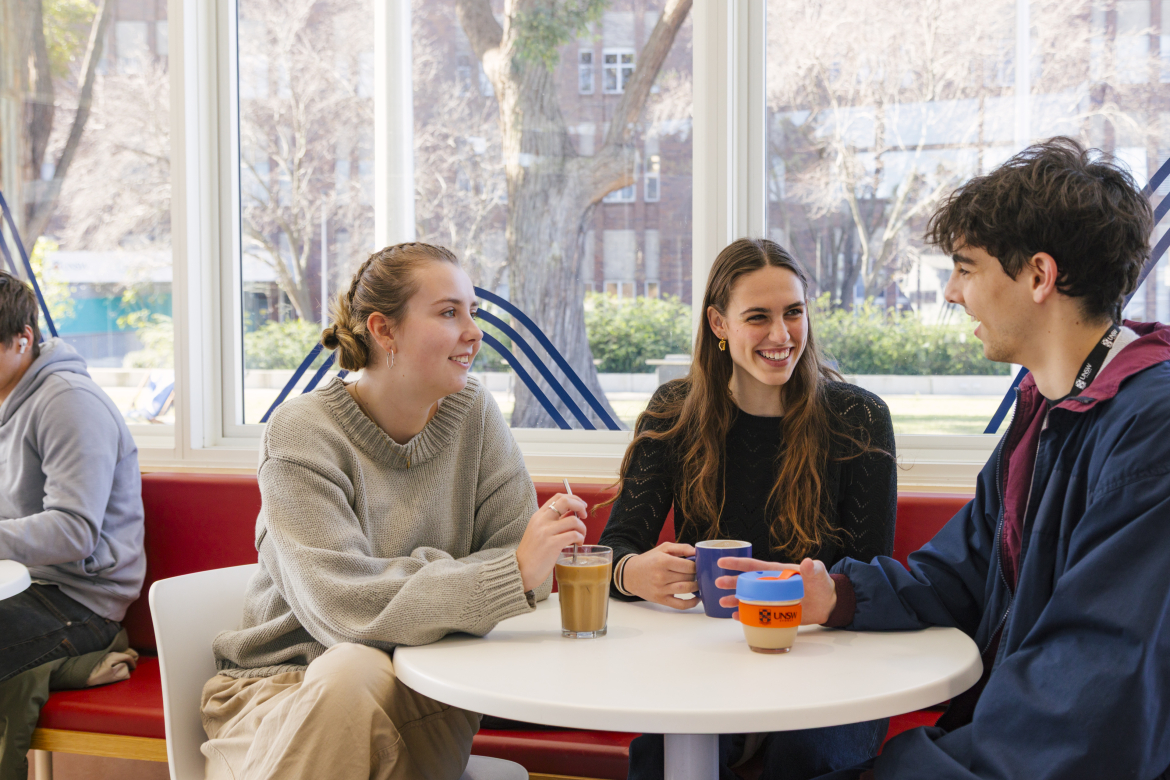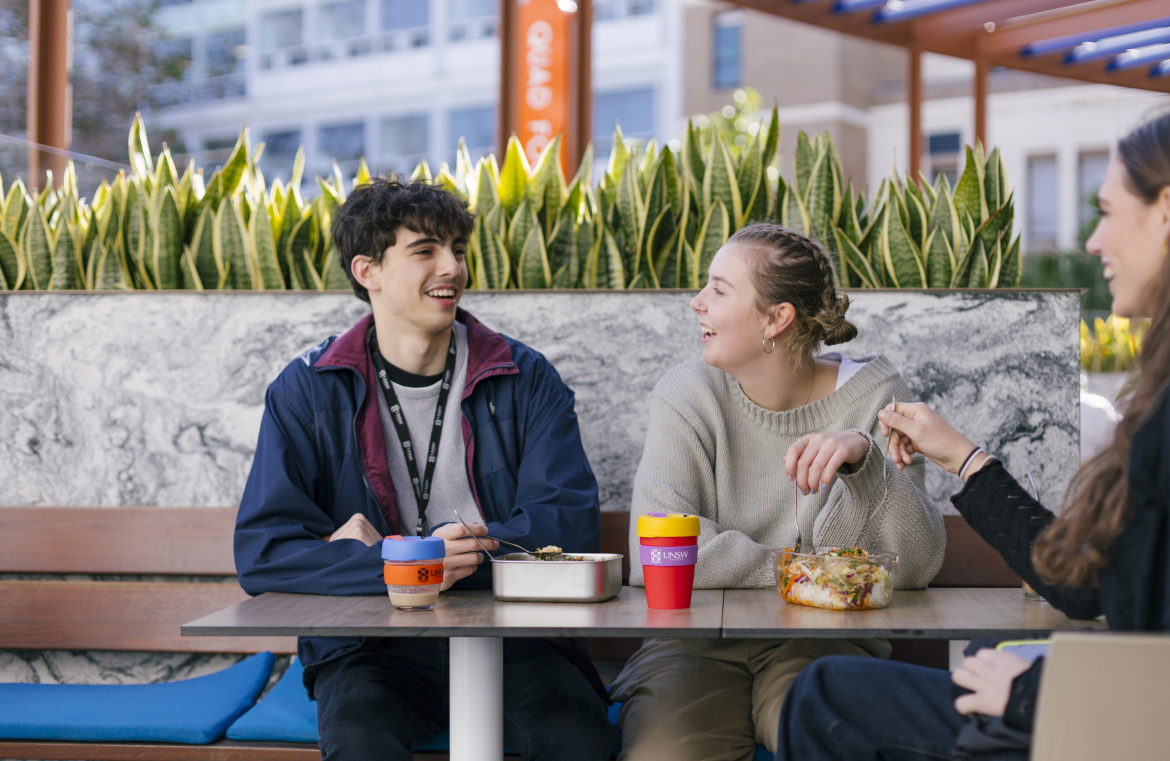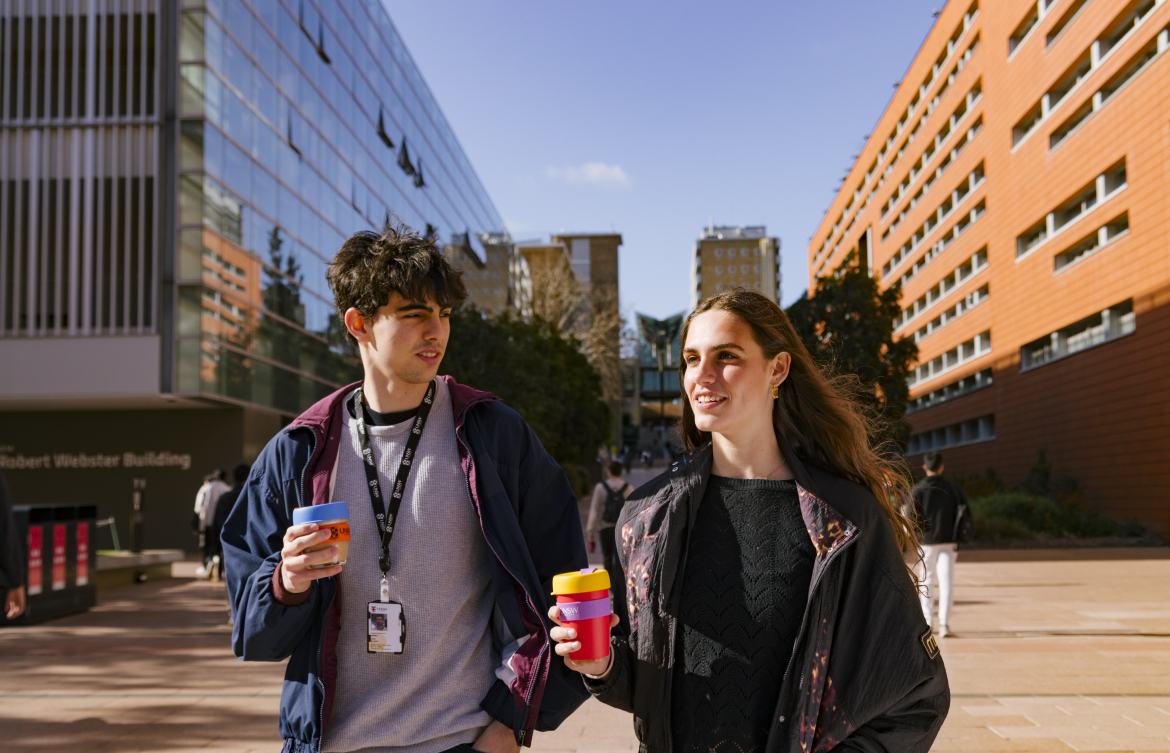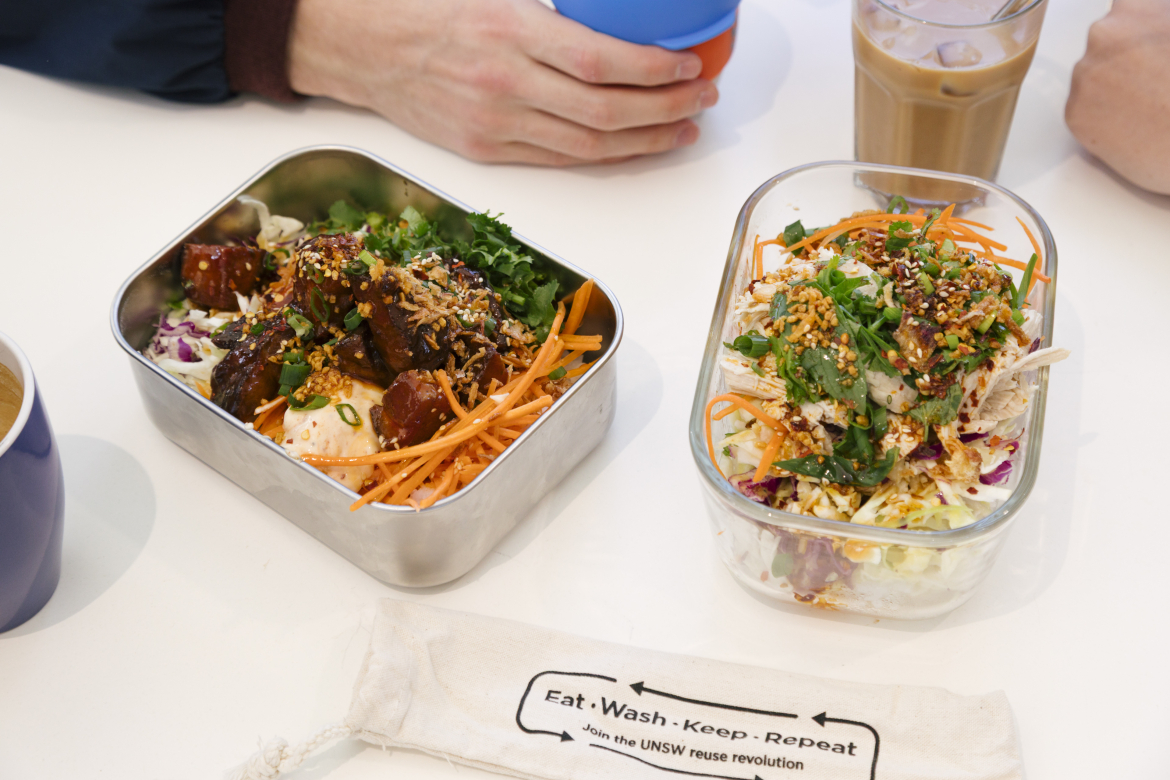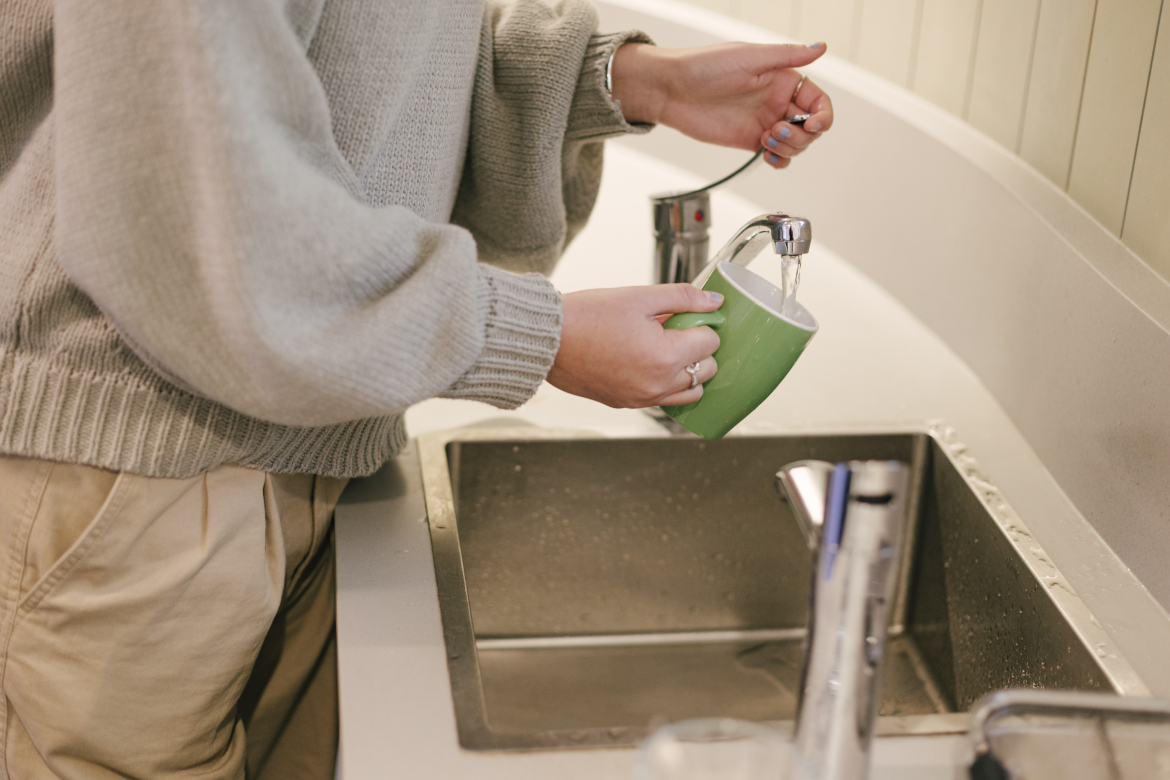Every coffee, snack, or lunch served in takeaway packaging leaves a mark on our planet and on your health.
At UNSW, we toss out an estimated 2.5 million single-use packaging items every year. That’s coffee cups, food bowls, cutlery, and containers used once, then sent to the bin.
The coffee cups example
If you lined up just the coffee cups used on campus in a year, they’d stretch from Kensington to Parramatta and back.
It’s not just about waste, it’s your health, too.
Single-use packaging can also affect our health. Many takeaway items are lined with plastics or chemical coatings designed to resist leaks and grease. Under certain heat conditions, these molecules break down into microplastics and chemicals that are now found in our water, food, and even our bodies. Research suggests humans may be ingesting up to 5 grams of microplastics each week—roughly the weight of a credit card. Meanwhile, PFAS chemicals, found in some packaging coatings, have been linked to serious health concerns including hormonal disruption, immune system suppression, and increased cancer risk.1,2,3,4
The good news? You have the solution in your hands.
Choosing to reuse—your cup, bowl, bottle, container or cutlery:
✅ cuts down waste,
✅ reduces your exposure to harmful chemicals, and
✅ helps accelerate the transition to a sustainable society and planet.
Join the Choose to Reuse challenge.
It’s not about being perfect. It’s about leading by example and helping reuse become the new normal on campus.
